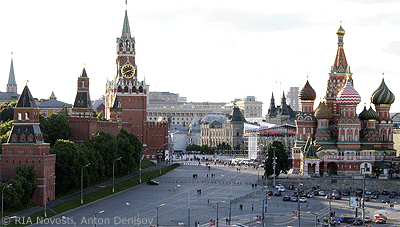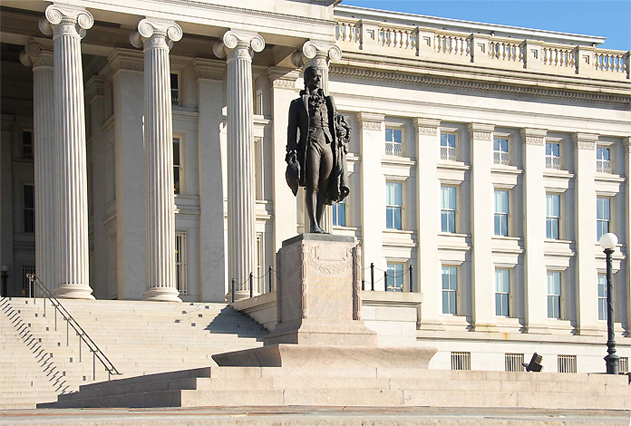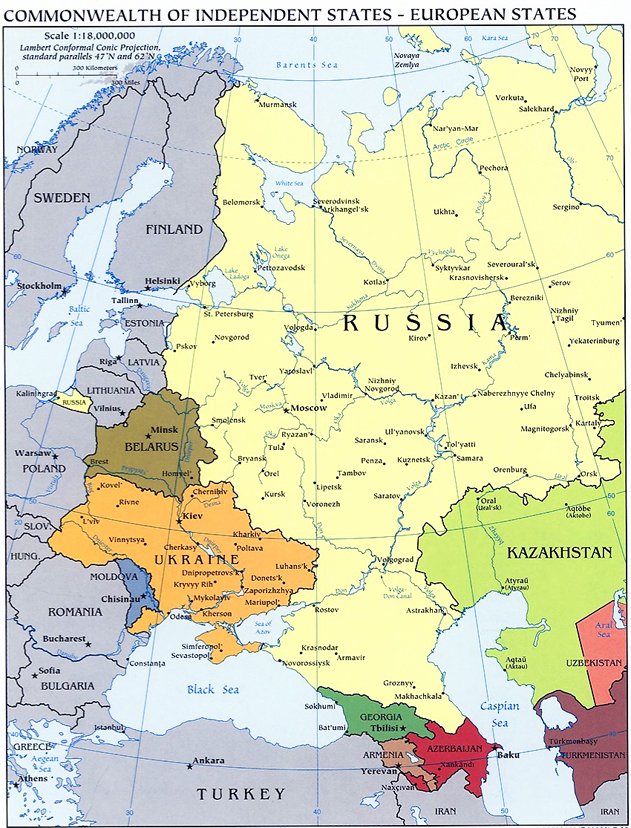From ‘Darth Vader’ To ‘The Wolf’: A Who’s Who Of Putin’s Sanctioned ‘Insiders’

(RFE/RL – rferl.org – Carl Schreck, Luke Johnson – April 28, 2014) When the United States last month imposed visa and financial sanctions on wealthy businessmen seen as close to Russian President Vladimir Putin, the Russian leader laughed it off, saying: “I think I need to stay away from them.”
Putin might have a harder time staying away from the group of senior officials sanctioned by the Obama administration on April 28 over the ongoing unrest in Ukraine. Some of the seven officials have been close to the Russian president ever since he began his political career in St. Petersburg more than two decades ago.
Igor Sechin
With his stern visage and reputation for secretive machinations, Sechin has been likened to Darth Vader and is believed by many to be Putin’s closest confidant. A former deputy prime minister who oversaw Russia’s vast ene rgy wealth, he currently serves as president of state-owned oil giant Rosneft and is widely seen as one of the country’s most powerful men. In announcing the sanctions, the U.S. Treasury Department cited Sechin’s “utter loyalty” to Putin as a “key component to his current standing.”
Sechin, 53, has been at the Russian leader’s side since the early 1990s, when he served as Putin’s chief of staff in the St. Petersburg city government. A YouTube video purportedly from 1996 shows the two men going through airport security together on their way to Moscow in 1996.
Unlike Putin, Sechin has never confirmed that he was a KGB officer. Many accounts, however, say he indeed served in the secretive Soviet security agency, including during his official stints as a civilian and military translator in Mozambique and Angola in the 1980s.
Sechin is also believed by many to have played a key behind-the-scenes role in the investigation and prosecution of the case against the founder of the Yukos petroleum giant Mikhail Khodorkovsky. Sechin’s Rosneft took over Yukos’s most attractive production asset, Yuganskneftegaz, in December 2004.
In 2009, “Forbes” magazine ranked Sechin as the 42nd most powerful person in the world, second in Russia only to Putin, who was then serving as prime minister. The Kremlin’s occupant at the time, then-President Dmitry Medvedev, was ranked one slot behind Sechin at No. 43.
Sechin said in a wry April 28 statement that the sanctions against him would not hurt Rosneft’s performance. “I take the last steps by Washington as an appreciation of the efficiency of our work,” Rosneft’s press office quoted Sechin as saying, according to Reuters.
Sergei Chemezov
Chemezov, 61, serves as head of the powerful state-owned holding Russian Technologies, which oversees the country’s high-tech industries. He headed the office of the Luch industrial research enterprise in Dresden (1983-88), wher e he became acquainted with Putin, then a KGB officer serving in the East German city.
Chemezov served under Putin in the Russian Presidential Property Management Directorate in the late 1990s and was later appointed general director of the state-owned Rospromexport.
Dmitry Kozak
Kozak, 55, is a deputy prime minister seen as a problem-solving technocrat often called on to tackle difficult major projects — a kind of Russian-government version of the Harvey Keitel character “The Wolf” in the 1994 movie “Pulp Fiction.”
Kozak met Putin while working in the St. Petersburg administration in the 1990s and later served as Putin’s chief of staff when the future Russian president was named prime minister in 1999. He initially ran Putin’s 2000 presidential campaign but was later replaced by Medvedev. He again ran Putin’s campaign for reelection in 2004.
Kozak was tapped to oversee preparations for the 2014 Winter Olympics in Sochi and pr eviously served as Putin’s envoy to the Southern Federal District, which includes the restive North Caucasus region, the site of two brutal wars between separatists and federal forces.
Last month Putin appointed Kozak to oversee the economic development of Crimea after Russia annexed the Ukrainian territory.
Aleksei Pushkov
Pushkov, 59, serves as the chairman of State Duma’s international affairs committee and is a staunch Putin loyalist. Of the officials sanctioned by the United States on April 28, Pushkov is by far the most vocal public figure, thanks in large part to incendiary statements he regularly makes on his Twitter feed. He also voices his relentless criticism of the West on his own television show.
Pushkov blamed the 2013 Navy Yard shooting in Washington on “American exceptionalism,” and he erroneously stated that U.S. intelligence leaker Edward Snowden had accepted asylum in Venezuela. He has also said that the Pussy Riot art collective should be sent to the zoo, not jail, and he supports banning the adoption of Russian children by citizens of countries where gay marriage is legal.
Despite his substantial following on Twitter and regular posts on his feed, Pushkov did not immediately tweet a reaction in the hours after the sanctions against him were announced. He did retweet a Twitter inquiry sent to him from Steven Erlanger, London bureau chief of “The New York Times,” that read: “Pushkov, why?” He has said previously that Western sanctions against Russia would force the country to pursue a more independent economi path.
Vyacheslav Volodin
Volodin Volodin, 50, is Putin’s first deputy chief of staff and is seen as a key architect of Putin’s increasingly repressive domestic policies since the Russian leader’s return to the Kremlin in 2012. Prior to joining the presidential administration, Volodin served in Russia’s lower house of parliament and as a senior member of the Putin-loyal political party United Russia.
Yevgeny Murov
Since 2008, Murov, 68, has served as director of Russia’s Federal Protection Service (FSO), roughly the equivalent of the U.S. Secret Service. Like many in Putin’s inner circle, he worked in St. Petersburg in the 1990s, when Putin served in the city administration. In the early 1990s, he oversaw Federal Security Service (FSB) troops in St. Petersburg and the Leningrad Region, and in 1997 he became deputy chief of the FSB Directorate in St. Petersburg.
Oleg Belavantsev
Belavantsev, 64, was appointed last month as the Kremlin’s envoy to the newly created Crimean Federal District following Russia’s annexation of the Ukrainian territory. He is seen as politically close to Russian Defense Minister Sergei Shoigu. In the 1990s, Belavantsev served as first deputy general director of Rosvooruzhenie, a formerly state-owned enterprise handling Russia’s defense import/export business that was later eliminated when Rosoboronexport was formed. After Shoigu became governor of the Moscow Region, Belavantsev became his chief of staff.
Article from Radio Free Europe/Radio Liberty – rferl.org – © 2014 RFE/RL, Inc. All Rights Reserved. Article also appeared at rferl.org/content/russia-ukraine-sanctions-putin-insiders/25365834.html


